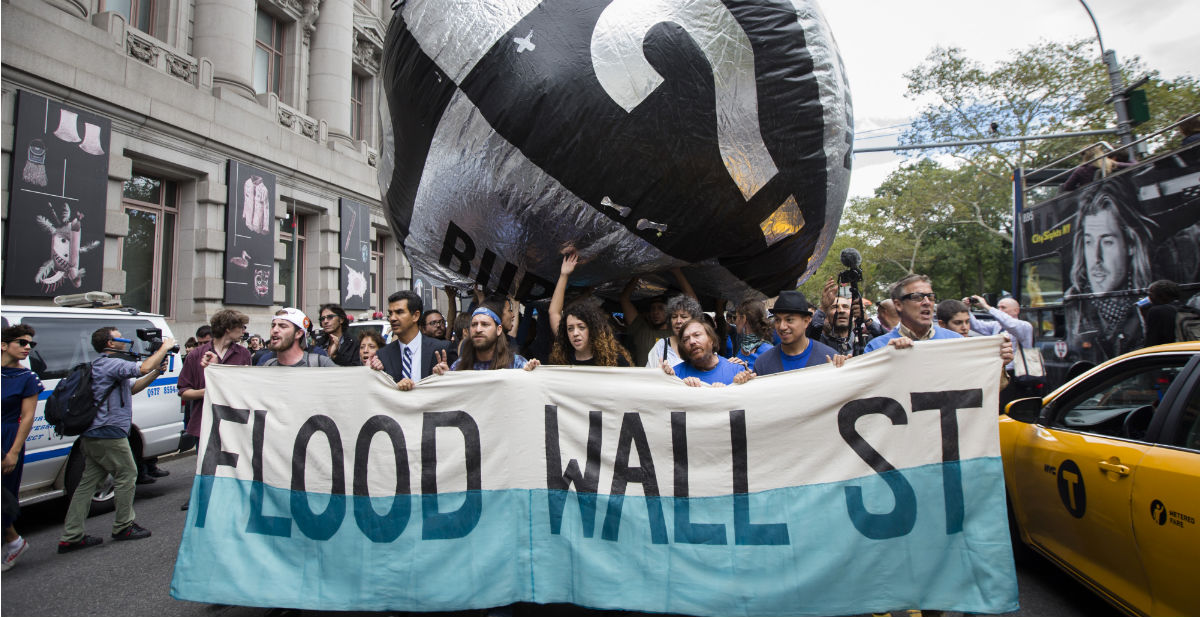This week’s People’s Climate March in New York City was emblematic of the climate change movement as a whole: unfocused, overshadowed by current issues, and not really about the environment at all.
Videos by Rare
The Sunday rally had a very successful turnout, attracting between 300,000 and 400,000 people. The problem is that its participants didn’t seem to have any realistic idea of what they are trying to achieve. Looking at the signs we could tell they were fighting for “climate justice,” but what does that mean?
Roughly, it means international carbon emission agreements that will transfer wealth from developed countries to less developed countries. But apparently, arresting the Koch brothers, reproducing less, and taxing Wall Street all fall under the blanket of climate justice as well.
The movement is broad and not rooted in reality to the extent that it seeks to accomplish anything. Instead of embracing low-carbon alternatives to fossil fuels like fracking and nuclear energy, it seeks a complete restructuring of society and the eradication of the system upon which the United States was founded. Instead of anything likely to pass through Congress, activists seek an international agreement that is unlikely to be ratified by the Senate and even more unlikely to get support from developing countries like China and India.
The question of whether or not policies will cause greater economic harm than environmental benefit is not even considered.
The movement is anti-capitalist, but can’t seem to escape capitalism. Twitter user @JustEric noted: “If your anti-capitalist movement has a hashtag, you’ve already failed.” Others tweeted out pictures of plastic coffee cups and napkins littering the street. A viral video showed United Nations Messenger of Peace (yes that’s a thing) Leonardo Dicaprio ignoring a question about his private yacht. Similarly, Al Gore left the event in a Chevy SUV.
Climate activists don’t focus on willful individual action that can help the environment, but on agreements that force everyone to act. There is a sense of inherent mistrust in the movement: we won’t do anything if you won’t. Yet there is also a strong emphasis on fairness. The countries that have historically used the most carbon must transfer wealth and the people who have the most must be taxed more.
But the proposed policies are anything but fair. Developing countries like China and India produce 58 percent of the world’s annual carbon dioxide emissions. A carbon treaty would either not allow developing countries the benefit of development, or allow developing countries to eclipse developed ones, therefore doing little to lower emissions. And regardless it will be the poor, in countries developed and undeveloped, who are most hurt by anti-carbon initiatives.
A movement that works so hard to control behavior both at home and abroad is exhausting and anxiety-provoking. Climate change activists tend to be either true believers who constantly work themselves up about the impending doom and lack of cooperation, or those who join the march for a couple hours before directing their attention back to their corporate jobs and Facebook accounts.
Fortunately enough people are in the second group that it is doubtful that the U.S. will keep its focus on climate change for very long. Even Barack Obama, who famously swore to reverse the rise of the oceans, couldn’t devote his entire day to the cause. The event was overshadowed by his speech on airstrikes in Syria this morning.
A movement aiming to make huge societal changes to prevent a hypothetical future disaster may receive attention now and then. But good luck actually bringing about meaningful change—let alone “climate justice.”



